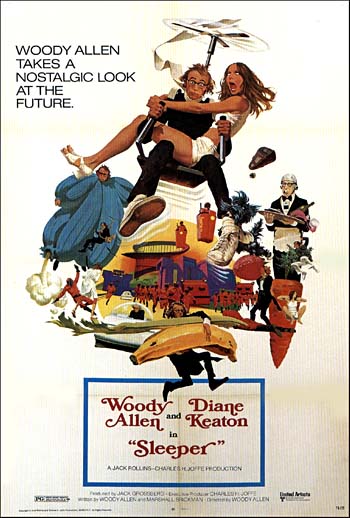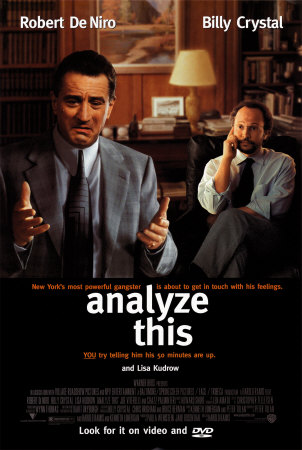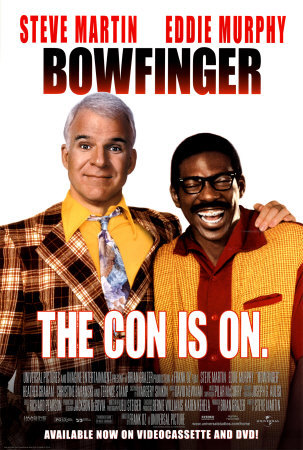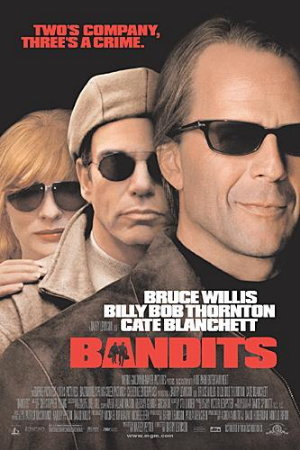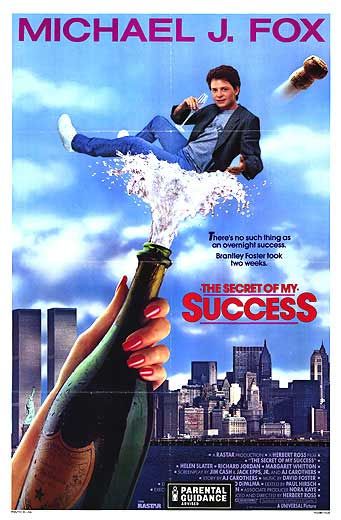An interesting trait in a lot of notable comedies is that many of them require multiple viewings. Sometimes it’s to enjoy the same funny bits all over again. Sometimes we have to watch them again because we know we missed out on something in the previous viewing. Sometimes, we didn’t like it first time around, but there was this strange attraction to it which had us coming back for a second viewing. This is not surprising as there are many different types of sub-genres of comedy, and not all of them are made for every audience member. There are some comedies which stick to the written word as the primary source of the humor. Others engage in total farce and physical comedy. Then there are the comedies that devote themselves to being topical as well as humorous. They are a send up of the many things that happen in the world — be they serious or silly, nothing will stop them from being ripe for satire. For our latest excavation in the comedy gold mines we are going to unearth another set of comedies that explore the varied sub-genres of comedy.
Sleeper (1973)
Sleeper is Woody Allen’s sole foray into the realm of science fiction. The irony of this film is that, in his efforts to make a futuristic comedy, all Allen had to do was replicate the comedy stylings of the silent film era. Allen still graces the comedy with his signature neurotic, cynical wit, but he combines it with many moments of Chaplinesque humor which lead to sped-up scenes accompanied by a wacky jazz score (composed by Allen himself). In the film, Allen plays Miles Monroe, a jazz musician and health food store owner who goes into the hospital for an appendectomy and winds up getting frozen for two hundred years! Now Miles is an alien on his own planet. The world he once knew is now a totalitarian regime where the citizens revel in materialism and overindulgence at the price of their enlightenment. On the run, Miles pretends to be a servant robot to Luna (Diane Keaton). Pretty soon they both wind up getting involved with the resistance, and the fate of mankind could be won or lost by a nose… literally! Sleeper is a standout in Allen’s vast filmography. Delving into the future allows Allen a fresh palette with which to create a truly absurdist world, where he displays the evident fallibility that comes from a total dependence on technology and propaganda. Yet, even with all the satire inherent in this film, Allen wastes no time generating much laughter with lighthearted slapstick. So, if you’re reluctant to try some of Allen’s work, Sleeper is the one that will earn your favor.
Analyze This (1999)
We all hear these stories about the mafia. We hear about the mob hits that result in destroyed property, and destroyed lives. With so much bloodshed, you’re left to wonder how these guys live with themselves. Even with their money and their power, they have to crack sometime. For notorious mobster Paul Vitti (Robert DeNiro), that time is coming very soon. After a close friend is killed in a hail gunfire from a rival family, Vitti suffers from inexplicable bouts of panic attacks and depression. Lucky for him, his right-hand man bumps into Dr. Benjamin Sobel (Billy Crystal), an adequately successful psychiatrist who attempts to discover his niche in his profession while he sets out to marry his fiancee (Lisa Kudrow). Unfortunately when a mobster is your patient you are on call whenever he says that you are. The first batch of bonus points are earned by DeNiro for opting to spoof his image as a gangster movie villain. Throughout the film he sells himself as the usual goodfella that we all know and love him as, but then he starts bawling like a passionate mother at a wedding. This is a comedy that thrives on the one-on-one scenes between Crystal and DeNiro, particularly in scenes when Vitti turns the tables on Sobel as he heckles Sobel’s resentment towards his more successful father. The comedy stems entirely from the turbulent bond that forms between these two, and how, despite their social standings, they wind up developing a symbiotic friendship (a friendship in which Vitti realizes that his life outside the family is more important, while Dr. Sobel finds his confidence as a psychiatrist). Analyze This is a prime example of strong character-driven comedy where the character development never overshadows the humor, and vice versa.
Bowfinger (1999)
Before Tropic Thunder attacked the Hollywood establishment, Steve Martin took a crack at it with his endearing satire Bowfinger. Martin wrote and starred in this fable about down-on-his-luck film producer/director Bobby Bowfinger, who puts everything he has into the making of a sci-fi horror film entitled Chubby Rain. He realizes the thing that will help give the picture some credibility is to hire an A-List action star. The best candidate, Kit Ramsey (Eddie Murphy), also happens to be a narcissistic paranoiac who quickly dismisses Bowfinger’s offer without even reading the script. Eager to make good on the promise he made to his entourage, Bowfinger lies to them saying that Kit said yes. So now Bowfinger has to make a movie with a star who doesn’t even know he is in the movie. The scheme seems to work even though it is taking its toll on Kit’s sanity. The satire in Bowfinger is far more subtle compared to the aggressive Tropic Thunder; nevertheless, Bowfinger is just as daring. Steve Martin’s script rips into Hollywood’s tendency to sacrifice personal integrity for fame. The character Daisy (Heather Graham) sleeps her way up the totem pole of power through the very end when she hooks up with a lesbian producer. Kit Ramsey sacrifices his inhibitions, and as a result becomes a compulsive sex offender. Even Bowfinger himself has brushes with dishonesty in order to make him dream a reality. Ironically, the character who retains his innocence throughout the making of Bowfinger’s masterpiece is Jiff Ramsey (also Eddie Murphy), Kit’s sweet, nerdy twin brother. Another bold step for Steve Martin is the fact that he satirizes the biggest taboo in Hollywood… Scientology. One could indeed argue whether or not Kit’s teeter-tottering sanity is a product of Terry Stricter (Terrance Stamp) and the people at MindHead. The comedy of this film is very naturalistic — never forced, and never obnoxious, even for Eddie Murphy. As a matter of fact, I will boldly say that this was the last time Eddie Murphy was genuinely funny in movies (I don’t count Donkey, I’m talking live action), and this movie was made ten years ago. Things aren’t looking good for him right now. At least his manic performance as Kit combined with his childlike exuberance as Jiff make this one of his best comedic performances next to Trading Places and Coming to America. This however doesn’t distract us from the fact that this is also some of Steve Martin’s best work as a comedy writer and, aside from the two leads, the supporting cast indeed make this a nice shiny chunk of comedy gold.
Bandits (2001)
Isn’t it weird how being a bank robber is so socially unacceptable, yet when we see them glorified on film we’re rooting for them all the way? Bandits is a prime example of that concept. Barry Levinson directs this fun romantic caper comedy about a pair of fugitives: the overconfident and impulsive Joe Blake (Bruce Willis), and his hypochondriac partner Tommy Lee Collins (Billy Bob Thornton). Shortly after busting out of prison, the two narrowly escape an impromptu bank robbery with a magic marker. Tommy devises the perfect way to rob banks without any fuss of the security guards — specifically, to knock on the door of the bank manager’s house and take him hostage the night before the robbery, robbing the bank the next day before the bank opens. Their method is totally effective, and they have much success until Tommy is bumped into (literally) by a dissatisfied housewife Kate Wheeler (Cate Blanchett in a Golden Globe-nominated performance). With his car broken down on the side of the road, Tommy is forced to take Kate as a hostage. Unfortunately this is not a hostage situation they were counting on. First Joe falls for her, then Tommy falls for her, and Kate winds up falling for both of them! This unconventional love triangle is the epicenter of this lighthearted romp. Ironically, despite its modern setting, it is totally safe to compare this film to Butch Cassidy and the Sundance Kid. Bandits has much in common with Butch & Sundance. The wit is the same, the camaraderie between the three leads has the same sort of magic as the chemistry between Paul Newman, Robert Redford, and Katherine Ross, and the film shares the same anti-establishment attitude which is always a popular trait among moviegoers. The only things that separate Bandits from Butch and Sundance are the setting and the plot developments. Since we at Fandomania despise spoilers with the utmost rancor, we will refrain from revealing said plot points. After all, we want you to see this movie. More importantly, we want you to love this movie. What’s not to love? Three diverse talents putting their comedic talents on display in a criminally funny comedy directed by a seasoned film director — how can you go wrong with that combo?
The Secret of My Success (1987)
Michael J. Fox is one of the true 80s icons, and amongst his many offerings on screens large and small, The Secret of My Success is one of his most memorable. The story feels very much like the 80s equivalent to How To Succeed In Business Without Really Trying. Heck, Secret even has a kick-ass soundtrack of its own. Where How To Succeed was a satire of office politics in the 1960s, The Secret of my Success rips into the office politics of the late 20th century. It heckles the concept that each of the characters must climb the corporate ladder through methods that include deception, seduction, and nepotism. The primary story revolves around Brantley Foster (ably played by Fox), an ambitious college grad from Kansas who is resolute in his decision to go to New York and take Corporate America by storm. This proves difficult when his job is liquidated on his first day forcing him to go to his distant uncle Howard Prescott (Dune‘s Richard Jordan) to ask for a job. Uncle Howard — oops, Mr. Prescott — takes a shine to Brantley, and shows it by sending Brantley to the mail room. Not content to disappear, Brantley jumps at the opportunity to install himself amongst the suits under a phony name. The conclusion of the story comes as no surprise, but what does come as a surprise are the crazy occurrences that happen along the way. The most memorable is when Brantley succumbs to the seductive sensuality of Vera (Margaret Whitton), who just so happens to be the boss’s wife! (That kinda makes her Auntie Vera!) Subsequently, Brantley falls for seemingly cold female executive Christy Wills (Helen Slater aka Supergirl). That’s fine and dandy, except she thinks Brantley is an executive, and she is sleeping with Uncle Howard! This film achieves an zen-like balance between light satire and heavy farce. The humor jumps from being sophisticated to raunchy to wacky, and never once does it feel out of place. Sometimes when lesser comedies attempt to blend comedy styles they always feel too chaotic and disjointed. I should also observe that Michael J. Fox isn’t the only one who runs this showboat. Fox finds himself fighting to hold onto the spotlight every time Margaret Whitton is on screen. The character of Aunt Vera is a refreshing change from the traditional corporate wife character, and Whitton realizes the character’s potential to the fullest. Naturally, the entire cast is on fire, but there’s always the performances that stand out because all the elements are in the right spot. The character is well written, the part is well cast, and in the end well executed through great acting and direction. So if you have a hankering for blissfully surperficial 80s nostalgia, The Secret of My Success is one of the true genuine articles.
NEXT MONTH: Michael Caine gives a dysfunctional ensemble cast stage fright, David Arquette and Scarlett Johannson have a bug problem, and Peter Sellers has triple trouble averting a nuclear apocalypse.


